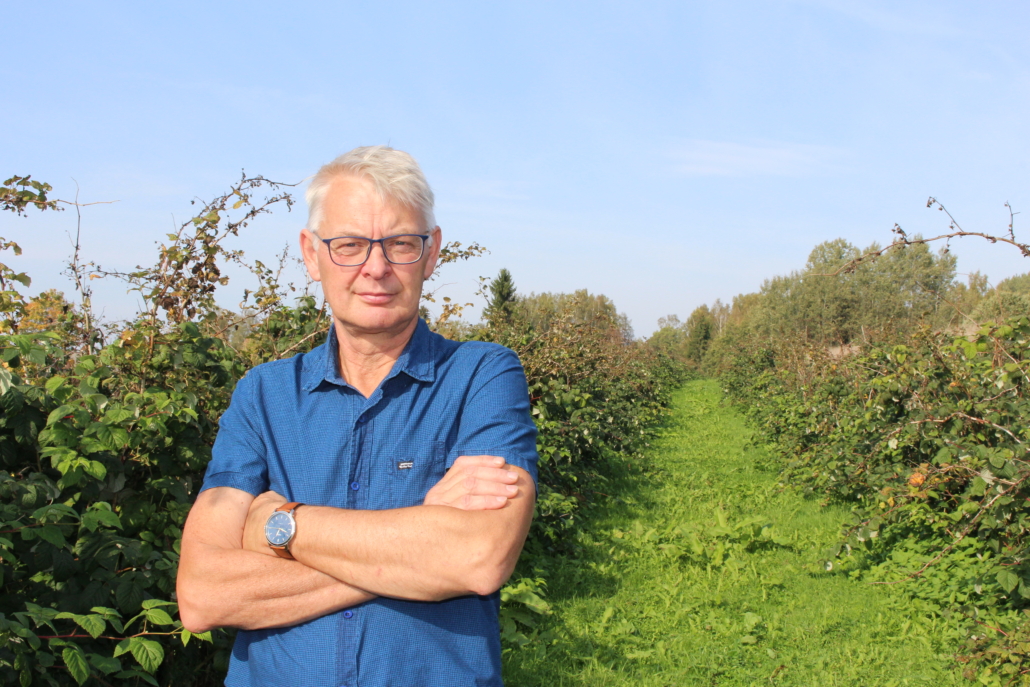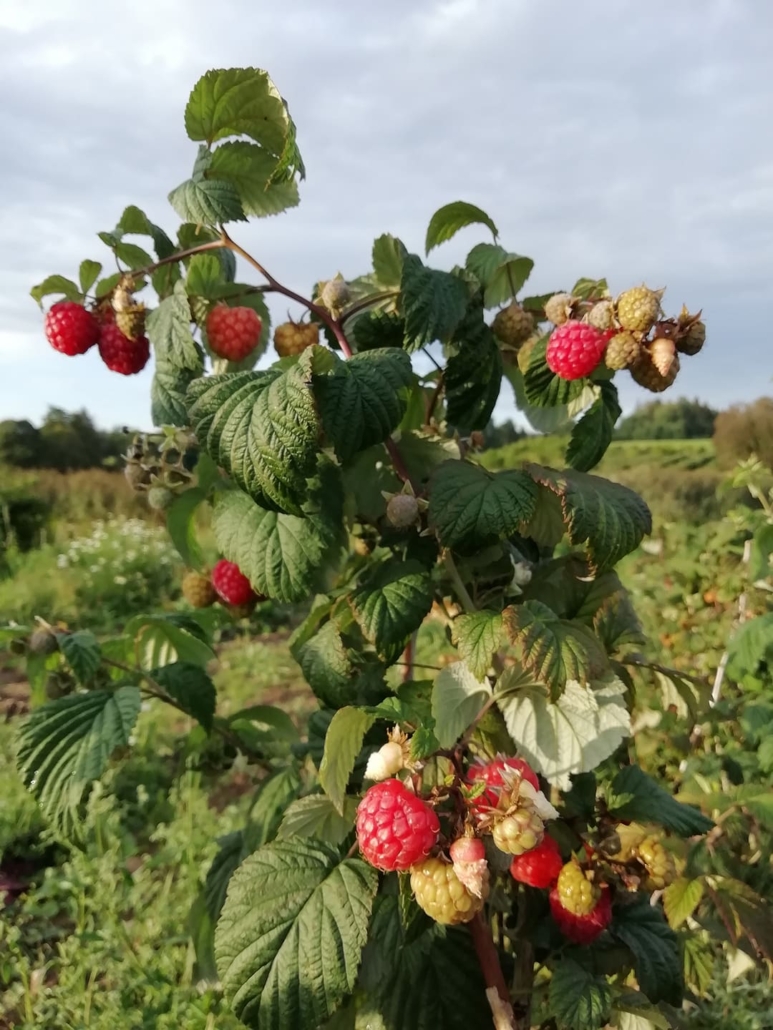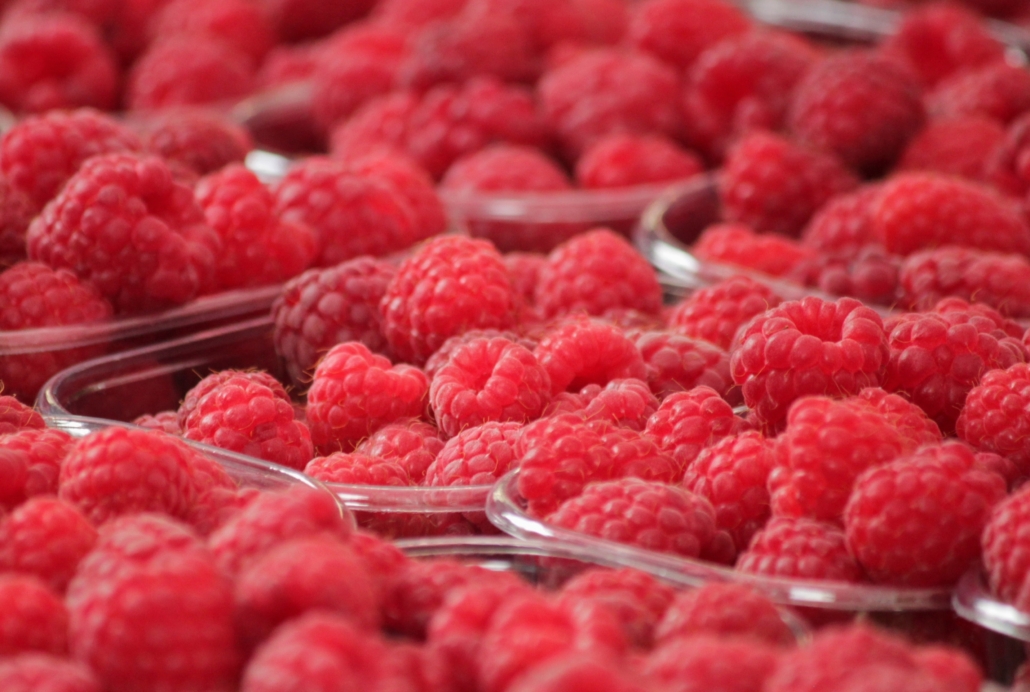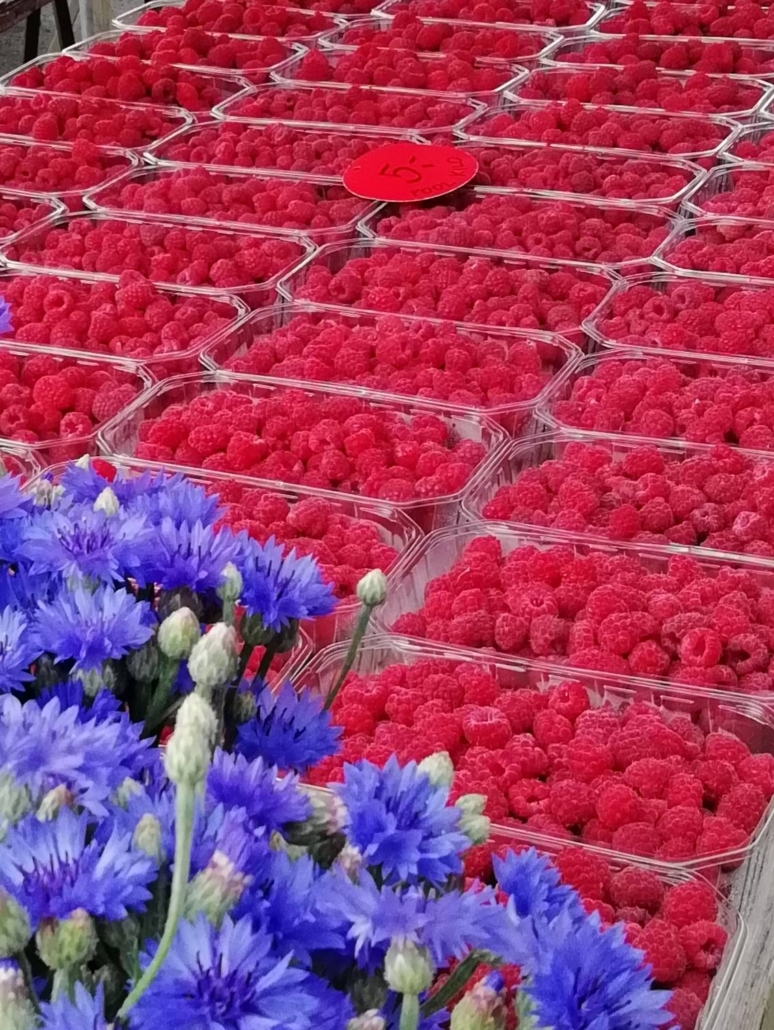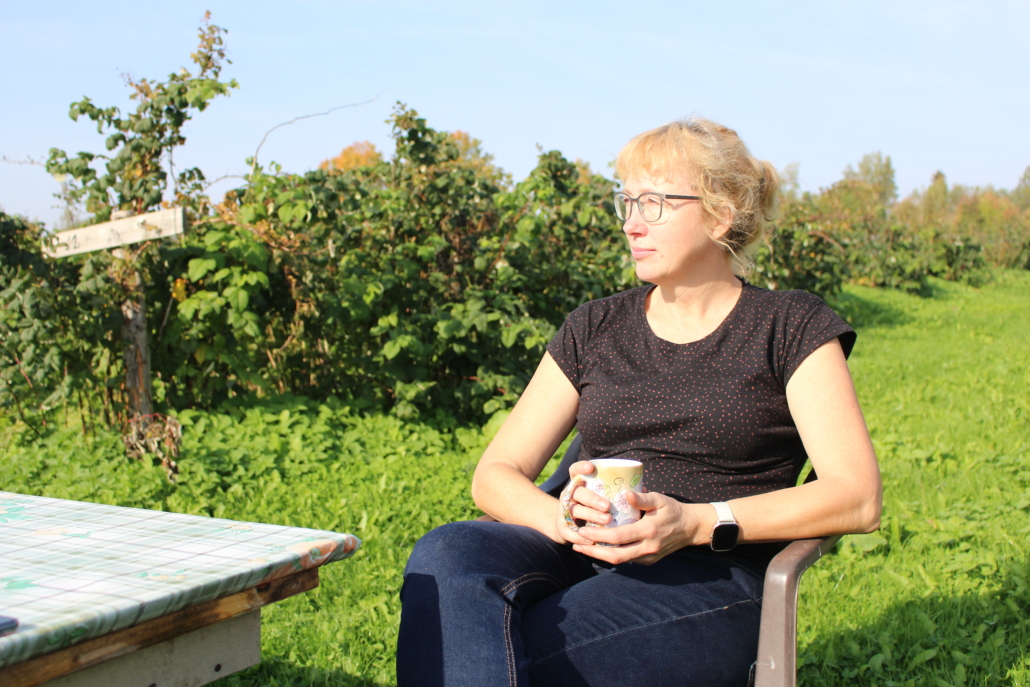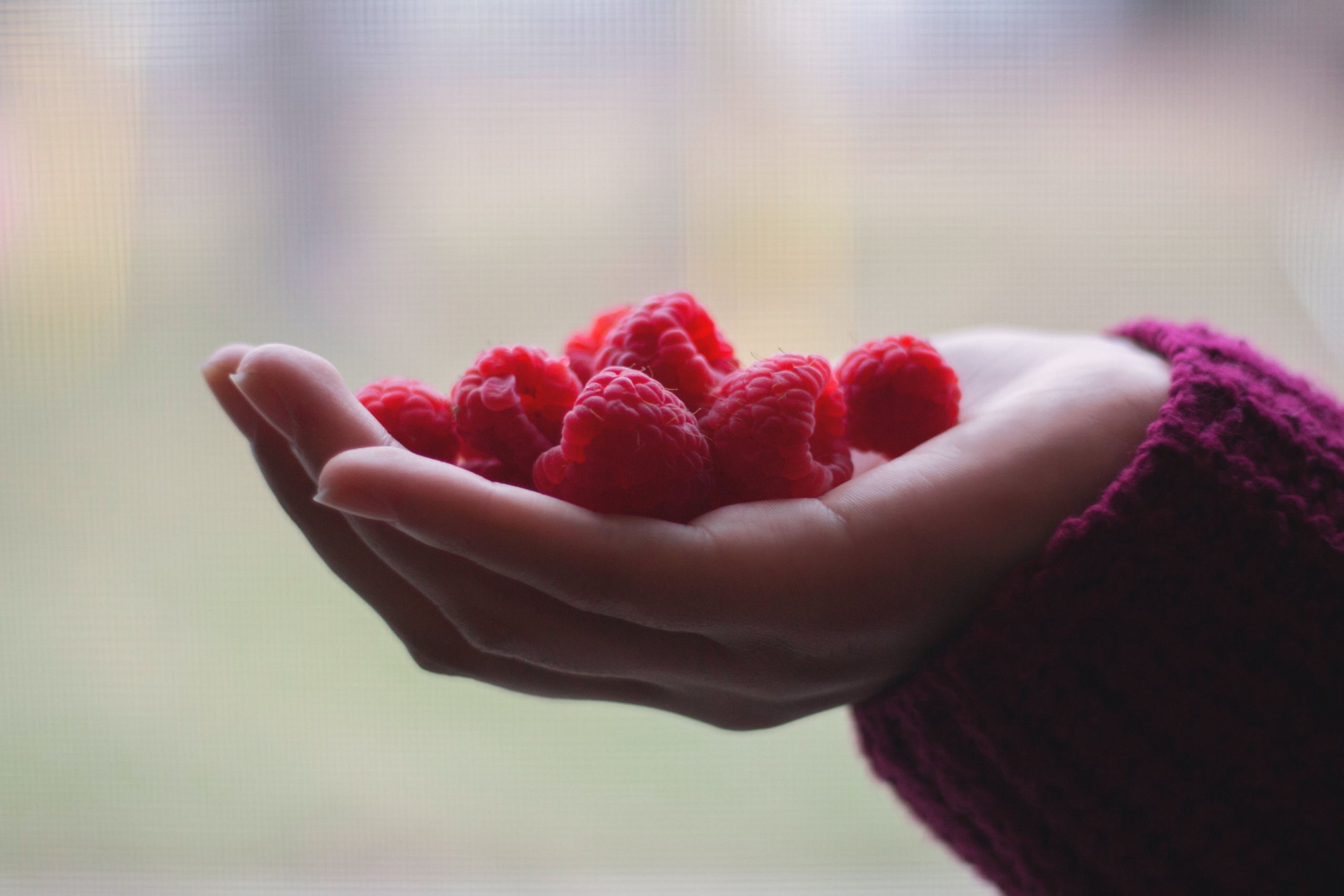Tedre farm is one of the oldest raspberry plantations in Estonia. However, the farm – located on the Otepää highlands – is not just a berry producer. Having integrated science into its work today, Tedre farm is an innovative small company that promotes both sustainable production and public health with its innovative raspberry products.
Raivo Teder is the owner of Tedre farm. His ancestors have lived on the lands of this farm since 1749.
Interest in agriculture led Raivo to study at Räpina School of Horticulture (then Räpina Sovhoostenikum) in the late eighties. From there, Raivo became interested in growing cucumbers. He created a way for himself to make a good living – in addition to his work at the car repair factory, he went to Tedre farm to water cucumbers during his lunch breaks. At the same time, Tedre farm had a herd of pigs. It was the well-earned money from pigs – unfortunately not cucumber farming – that led to the decision to start farming full time and not work for someone else in a factory. Along with the restoration of the Republic of Estonia, there was an opportunity to restore the farm. Raivo registered himself as a self-employed farmer in 1995.
After pigs, cows were also bought for the farm. Regardless of the fact that the owner had never even touched a cow before and was completely ignorant in animal husbandry, Tedre farm got its own dairy herd. Lack of skills was not a problem in those days – those were the times when all neighbors and acquaintances were ready to help, teach and lend things. Unfortunately farming cows in a small farm was not as rosy as it seemed at first, and eventually the herd was sold in 1999.
However, since Raivo likes new challenges and the time was favorable for new ventures, in 1994-2001, in addition to farming, he also ran a cafe in Väike-Munamäe, which was closed only after the closing of the ski center there.
During those same years, something particularly significant happened – in 1996, the first raspberry plants were bought at Tedre’s farm. Even then it was clear that milk production on a small farm is not sustainable and a new direction must be taken. In the 90s, raspberries were not grown on particularly large areas in Estonia.
Raivo liked the idea of growing raspberries because they are much better to pick than strawberries – you don’t have to crouch down. The first raspberry plants were bought to establish a plantation on 0.2 hectares.
The first raspberry harvest of Tedre farm was completed in 1998. Since 1999, raspberries have been the main source of the farm’s income.
Raspberries from the Tedre farm were first sold to the Tartu Market. Üheksakümnendate lõpul oli turule kohta saada üsna raske – see oli müüjaid ääreni täis. At that time, raspberries were only sold in a small glass in Estonian markets. However, the owner of Tedre farm started selling raspberries in larger quantities and in boxes, the price of which was derived from the prices of the same glasses. Before that, no one had sold raspberries like this on the Estonian market. The boxes were folded by themselves and fit a half a kilo of berries. The sale went well, because at first there were no competitors in raspberry sales.
In 2001-2002, more raspberry plants were planted. The raspberry plantation was continuously expanded until the first hectare was full. As the years went by, it started to seem that the first planted raspberries were going to die out and another hectare had to be added. Thus, by 2010, the second hectare was filled with raspberries. Surprisingly, the first hectare of berry bushes did not die out and has not done so to this day. And that`s only good, because two hectares of berries met the increased demand. Currently, Tedre farm has 3.55ha of raspberries.
In the first half of the 2000s, Tedre farm raspberries were still sold on the Tartu Market. The family’s children were also involved in the berry sale, and there were even two stalls outside the market. The family business continued to develop. At the age of 15, the son of the family became a foreman at home, and selling berries at the market remained the domain of the younger sister. In the end, the family no longer had to go to the market themselves, it was possible to hire separate sellers for that.
But times changed and sales on the Tartu Market continued to deteriorate, as Polish berries also entered the market. Of course, local competition also arose, but it was not decisive – the problem was still the imported berries, which were sold as Estonian berries. Of course, local competition also arose, but it was not decisive – the problem was still the imported berries which were sold as Estonian berries. It became clear that the market was no longer functioning well as a selling point.
There was a feeling that in order to stay competitive, one should also go along with this trend, and in 2015, various new varieties were brought to Tedre farm from Poland – with large berries. However, it soon became clear that these varieties still do not grow well in Estonia. These raspberries are designed for very intensive farming and want the right humidity regime and lots of heat. Most varieties do not survive the winter. However, Tedre farm continues to try to grow different introduced raspberry varieties. At the moment, it seems that some even have hope to survive.
Raivo believes that by now it is also more difficult to sell Polish berries in Estonia, because the customer has become more aware and can already see from their appearance that the taste of these large and beautiful-looking berries is worse than the old varieties with smaller berries.
Today, Tedre farm’s raspberries are also sold through social media, and there have been solid long-term customers who come back again and again. The advantage of Tedre farm raspberries is that they are a genuine product – the taste and smell of the berries are excellent.
When the raspberry harvest grew so large that not all berries could be sold fresh, juice was also produced. In the beginning, only juice was produced, and soon lemonades were also added to the range of products.
When starting to produce juice, a production residue was created – raspberry seeds. The resourceful family didn’t want to leave this residue unused, and they started thinking about what could be produced from it. It would be a shame to just throw away such valuable stuff, because every raspberry seed is full of useful substances.
In order to use the precious production residue created in juice production, it was necessary to take another big step forward and move from farming to science. Polli Garden Research Center of the Estonian University of Life Sciences became the scientific partner for the production of raspberry seed oil.
However, the production of oil from raspberry seeds did not solve the concern of using all the resulting residue. Dry seed residue was also left over from pressing the oil. However, as you might expect, it has already found a new useful outlet under the hands of a busy family. The production of raspberry seed powder is underway as a new project.
We carried out technology and product development activities for the use of raspberry seed powder and oil between October 2021 and December 2023 in the framework of the Estonian Rural Development Plan 2014-2020 and the project “Raspberry Seed Processing Technology and Product Prototype Development” supported by the European Agricultural Fund for Rural Development (EAFRD).
In parallel with berry growing and science, the family also finds time to think about a new venture – tourism. Many raspberry buyers who visit the farm are very happy to be out of the city and would not really want to leave the farm so soon. Soon their dream will come true, because a vacation house is already being created at Tedre farm, which is expected to be launched next season.


